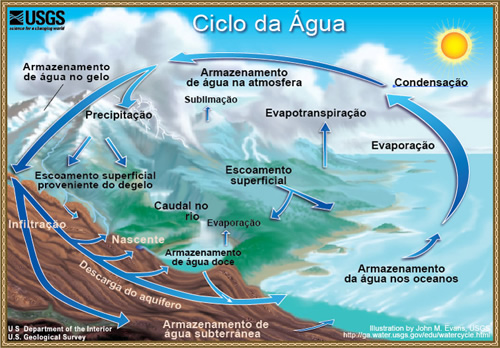History of World Water Day
Two thirds of the planet's surface is covered by water. Logically, there seems to be water left over for the population, right? Does it seem absurd to talk about a water crisis? Let's get to the facts: 97% of the planet's water is from the seas, unfit to be drunk or used in industrial processes; 1.75% is ice; 1.24% is in underground rivers, hidden inside the planet. For the consumption of more than six billion people, only 0.007% of the Earth's total water is available.
Add to this the dumping of garbage and sanitary sewage in the rivers, or even the industries that throw hot water in the rivers - which is fatal for fish. The little water that exists is further compromised. This requires the construction of sewage treatment and desalination plants, for example. And it requires awareness to avoid waste and pollution, especially in large cities.
With the objective of drawing attention to the issue of water scarcity and, consequently, seeking solutions to the problem, the United Nations (UN) instituted in 1992 the World Water Day: 22 March.
As a result, the UN also produced a document entitled "Universal Declaration of the Rights of Water", which treats this liquid as the sap of our planet.
Universal Declaration of the Rights of Water
According to the Universal Declaration of Water Rights, it is the lifeblood of our planet and an essential condition of life on earth. Check out the articles:
Art. 1º - Water is part of the planet's heritage. Each continent, each people, each nation, each region, each city, each citizen is fully responsible in the eyes of all.
Art. 2nd - Water is the lifeblood of our planet. It is the essential condition of life for every vegetable, animal or human being. Without it, we could not conceive what the atmosphere, climate, vegetation, culture or agriculture are like. The right to water is one of the fundamental human rights: the right to life, as stipulated in Art. 3 of the Declaration of Human Rights.
Art. 3rd - The natural resources for transforming water into drinking water are slow, fragile and very limited. Therefore, water must be handled with rationality, caution and parsimony.
Art. 4th - The balance and the future of our planet depend on the preservation of water and its cycles (ANNEX I). These must remain intact and function normally to guarantee the continuity of life on Earth. This balance depends, in particular, on the preservation of the seas and oceans, where the cycles begin.
Art. 5th - Water is not just a legacy from our predecessors; it is, above all, a loan to our successors. Its protection constitutes a vital necessity, as well as a moral obligation of man towards present and future generations.
Art. 6th - Water is not a free donation from nature; it has an economic value: it is necessary to know that it is sometimes rare and expensive and that it may well be scarce in any region of the world.
Art. 7th - Water must not be wasted, polluted or poisoned. In general, its use must be made with awareness and discernment so that it does not reach a situation of depletion or deterioration in quality of the currently available reserves.
Art. 8th - The use of water implies respect for the law. Its protection is a legal obligation for every man or social group that uses it. This question should not be ignored by either man or the state.
Art. 9º - Water management imposes a balance between the imperatives of its protection and the needs of an economic, sanitary and social order.
Art. 10th - Water management planning must take into account solidarity and consensus due to its uneven distribution on Earth.
ANNEX I
